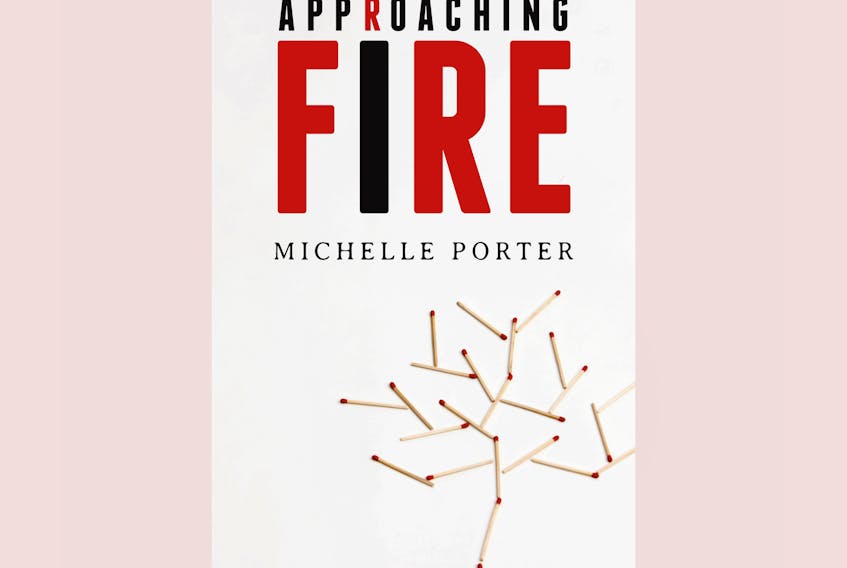This protean autobiography is structured like an album, an assemblage of letters, newspaper clippings, poetry, and other documentation.
Author Michelle Porter lays out a textual rhythm from the outset. The front page is embossed with a ticket to an “Old-Time and Modern Dance” in Winnipeg, at an establishment “Just North of Portage,” admission 25 cents.
After the table of contents comes another stamp, “Half-Breed Scrip For sale.”
The preface is a letter, the first of a series, addressed to “My dear Pépé,” and continues, “I trace you in the stories the women in our family tell, and in the oral family tree shared at all the aunties’ kitchen tables, heavy with all the cookies and bars made of chocolate, icing sugar, and butter.”
This man is a compelling figure — someone maybe with many answers for her — and she’s on the trail. But she’s also alert to the knowledge that the ‘family tree is not a light document. It has weight.”
There is an actual recorded family tree, “back to the time of the voyageurs and the first French who came to the land we now call Canada.” And her great-grandfather’s name is there: Leon Joseph Robert Goulet.
But that’s just the beginning. “Sometimes, the stories I’ve heard make me forget that I’ve never met you.”
Chapter One starts with a poem.
“Just now it strikes me how easy a thing it is / to misplace a man. // A woman of course was never difficult / to misplace // Women are / misplaced all the time and / other than one or two or three lists / of exceptions / they aren’t much missed / by the world … “This is buttoned with a label from a record disc, “Red River Jig,” by “Leon Robert Goulet.”
This balance and counter-balances carries through the pages: clipping, poem, the arc of the Half-Breed Script, news coverage of fires, (infernos really, from different perspectives — this volume’s title can be read in at least two ways.), visual cue, letter.
Chapter by chapter it bunches and builds.
“I began looking for Bob Gouilet / in my first-year college / English calls. / I wrote about him and my grandmother / the family music they played / in Winnipeg, a place I knew / nothing about …”
The bloodline has implications beyond family relationships.
“It’s no easy task to demonstrate that you meet this criteria to become. Citizen. The documentation has to be extensive and you know, Pépé, that our relations easily meet all these criteria. So many people think the Métis are just a mix of any First Nation with any non-Indigenous – and the less mixed the better. That’s why there are those who misunderstand who I am because I am pale and blond, like my older brother, traits we inherited from our red-haired father.”
This is all studded with articles and accounts of conflagrations.
“Online, I read a newspaper story out of B..C that tells of one farmer who refused to evacuate, summer of 2018. He said it looked like lava was coming down the mountain. He said the whole mountainside was engulfed. He wouldn’t leave and authorities said people like him put firefighters’ lives at risk. He stayed on the slight chance that he could protect a part of his farm from what he knew was coming, what must come, what would not spare him, surely.”
All of which extolls an emotional cost.
“Complex post-traumatic stress is a term that’s come into more common use in the last decade or so. It’s usually followed by the term disorder.”
These broader exploratory strokes are always coaxed back into the more narrow driving investigative vein. One of the many illustrations, for example, is an advertisement for “One Night of Love” at with “Bob Goulet and His Red River Echoes,” above a notice that “The Count of Monte Cristo is screening at the Crescent.
Because there’s not just a genetic connection, but an imaginative one.
Goulet’s musical ability is both a talent and a tangible thing, something Porter, quite literally, has taken with her, though at first unaware of the significance they embody: “The records I’d moved around / carrying boxes holding them in / lifting them out // taking pictures / these fragile things…”
Joan Sullivan is editor of Newfoundland Quarterly magazine. She reviews both fiction and non-fiction for The Telegram.









